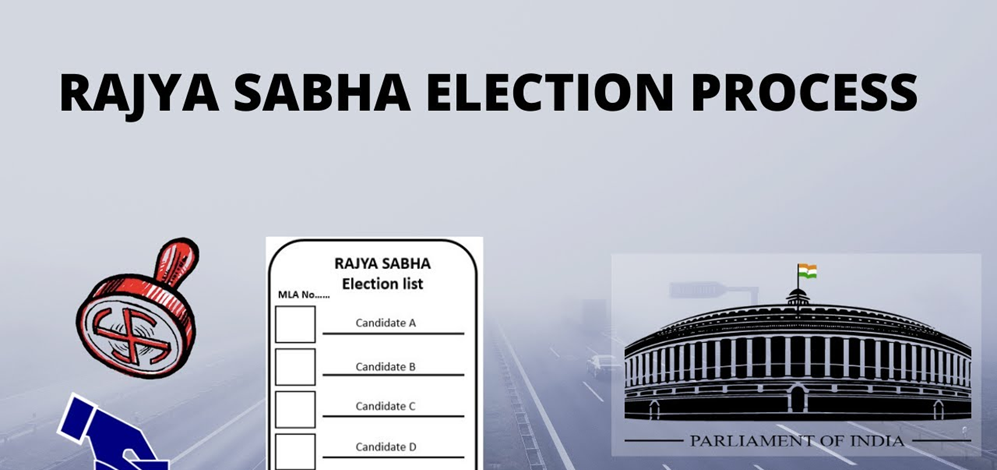Free Courses Sale ends Soon, Get It Now


Free Courses Sale ends Soon, Get It Now



Copyright infringement not intended
Context: The Election Commission of India (ECI) has declared the dates for the election of 10 Rajya Sabha members from three states - Goa, Gujarat and West Bengal. The election will take place on July 24, 2023.
Details
Rajya Sabha
Rajya Sabha Election
Features
Significance
Challenges and Controversies
Therefore, there is a need to reform and improve the Rajya Sabha election process to make it more transparent, fair, accountable and effective.
Possible ways forward are:
Conclusion
Must-Read Articles:
Rajya Sabha Election: https://www.iasgyan.in/daily-current-affairs/rajya-sabha-election
|
PRACTICE QUESTION Q. Which of the following is a special power of Rajya Sabha? 1. To initiate impeachment proceedings against the President 2. To pass a resolution to create new states or alter the boundaries of existing states 3. To declare a state of emergency in the country 4. To pass a resolution to create or abolish an All India Service How many of the above statements is/are correct? A) Only 1 B) Only 2 C) Only 3 D) All Answer: A Explanation: Rajya Sabha has some special powers that are not enjoyed by Lok Sabha. One of them is to pass a resolution by a two-thirds majority to create or abolish an All India Service, such as the Indian Administrative Service or the Indian Police Service. Q. Which of the following motions can be moved only in Lok Sabha and not in Rajya Sabha? 1. Motion of no-confidence 2. Motion of adjournment 3. Motion of censure 4. Motion of thanks How many of the above statements is/are correct? A) Only 1 B) Only 2 C) Only 3 D) All Answer: A Explanation: A motion of no-confidence is moved by the opposition to express its lack of confidence in the government. It can be moved only in Lok Sabha, as it is directly elected by the people and represents the majority opinion. Rajya Sabha cannot move such a motion, as it is indirectly elected and represents the federal principle. |
© 2024 iasgyan. All right reserved